Search & Articles
Search from thousands of articles from sabzi, roti, chawal, dal, paneer, Indian recipes to health articles.
Indian Food Chart For Pregnancy

Indian Food Chart for Pregnancy
Table of Content
Indian Food Chart for Pregnancy
Although the phrase “balanced diet” is so commonly used in our daily lives, very few of us actually know what it means. This is simply because we are unaware of what a balanced diet should comprise of.
It means eating a variety of foods chosen from each of the six major nutrient group viz. protein, carbohydrates, fats, vitamins, minerals and water. A woman who is well nourished before conception and eats a whole lot of nourishing foods through the pregnancy will have a good reserve of nutrients for herself and her growing foetus.
A balanced diet will also enable you to have an easy pregnancy that is free of complications like heartburn and free from digestive disorders like constipation. Try simpe recipes like Dal Paratha.
Dal Paratha, Yellow Moong Dal Paratha
To assure a healthy pregnancy, you should supplement your diet with these major nutrients from the basic food groups mentioned below:
Indian cereals for pregnancy.
During pregnancy, Indian cereals like ragi (finger millet), bajra (pearl millet), jowar (sorghum), and whole wheat are highly beneficial due to their rich nutrient profiles. Ragi is an excellent source of calcium and iron, crucial for fetal bone development and preventing anemia, while bajra and jowar provide fiber, protein, and essential minerals like magnesium and phosphorus. Whole wheat offers complex carbohydrates and B vitamins, supporting energy levels and fetal growth. Traditional preparations like **ragi porridge, bajra rotla, jowar upma, or dalia (broken wheat) khichdi** make these cereals easy to digest and nutritious for expecting mothers. Including a variety of these whole grains ensures a balanced intake of macronutrients, micronutrients, and dietary fiber, promoting healthy pregnancy outcomes.
Opt for cereals like wheat, jowar, bajra, ragi (nachni), rice etc. Avoid maida as it is refined and devoid of many nutrients. Nurture yourself and your baby with Bajra and Moong Dal Khichdi and Nachni Ladoos.
Bajra and Moong Dal Khichdi
Nachni Ladoos, Ragi Ladoo
Indian dals (pulses) for pregnancy :
Indian pulses, commonly known as "dals," are an excellent and essential part of a pregnant woman's diet, offering a powerhouse of nutrients crucial for both maternal health and fetal development. Varieties like moong dal (green gram), masoor dal (red lentils), toor dal (pigeon peas), chana dal (split chickpeas), and urad dal (black gram) are particularly beneficial. These pulses are rich sources of protein, vital for the baby's growth and the mother's tissue repair; folate (folic acid), which is critical in preventing neural tube defects in the baby; and iron, essential for preventing anemia in the mother and ensuring adequate oxygen supply to the fetus. Additionally, their high dietary fiber content helps combat common pregnancy discomforts like constipation and promotes healthy digestion, making them a wholesome and easy-to-incorporate food group in Indian cuisine.
Choose pulses like dals (moong dal, chana dal etc.) and legumes (matki etc.) You need not make a subzi or a dal with them always.
bean and capsicum salad recipe | rajma, kabuli chana salad | protein rich Indian rajma salad with bell peppers | Protein rich rajma and chickpeas tossed with capsicum and Indian spices to perfection in bean and capsicum salad. A serving of bean and capsicum salad provides roughly 281 calories. One serving of bean and capsicum salad delivers 89%% folic acid, 40% vitamin B1, 24% protein. 24% zinc, 57% fibre, 188% vitamin C, 42% iron, 27% calcium, magnesium 38%, 41% phosphorus, of your Recommended Dietary Allowance ( RDA).
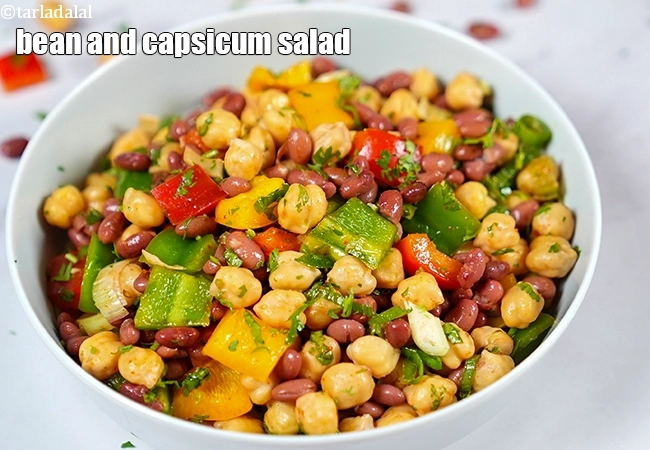
Indian dairy for pregnancy :
In India, dairy products are incredibly important for pregnant women, offering key nutrients. Milk, yogurt (dahi), paneer (Indian cottage cheese), and buttermilk (chaas) are especially good choices. They're packed with calcium, which is vital for your baby's developing bones and teeth, and helps keep your own bones strong.
Dairy also provides high-quality protein, crucial for the baby's growth and for your body's recovery. Plus, yogurt and buttermilk contain probiotics that can help with digestion and improve gut health, potentially easing common pregnancy discomforts like constipation. When picking dairy, it's generally best to go for pasteurized and low-fat or fat-free options to ensure safety and manage calories during your pregnancy.
Curd and paneer are the best bet in this food group. Curd is easily digestible.
herbed paneer paratha recipe | shepu pudina paneer paratha | healthy coriander shepu pudina paneer paratha | 2 herbed paneer parathas provides 38% calcium, 20% protein of your daily RDA.
herbed paneer paratha recipe | shepu pudina paneer paratha | healthy coriander shepu pudina paneer paratha
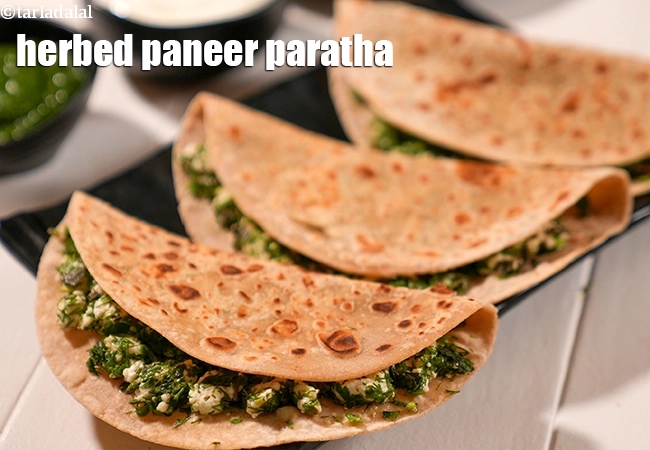
Simple Spinach Raita at lunch time is enough to add a whole lot of nutrients to your meal.
Palak Raita, Spinach Raita
On other days you can include paneer and corn chatpata salad.
Broccoli, Carrot and Paneer Subzi
Indian fruits for pregnancy :
Indian fruits offer a treasure trove of essential nutrients for pregnant women, making them a delicious and healthy addition to the diet. Fruits like mangoes, guavas, pomegranates, bananas, and apples are particularly beneficial. They are excellent sources of folate, critical for preventing neural tube defects; Vitamin C, which boosts immunity and aids in iron absorption (crucial for preventing anemia); and dietary fiber, which helps alleviate common pregnancy-related constipation and promotes healthy digestion.
Additionally, fruits like bananas provide potassium for blood pressure regulation, while pomegranates offer powerful antioxidants. Consuming these fruits in moderation ensures a good intake of vitamins, minerals, and natural sugars, supporting both the mother's well-being and the baby's healthy development.
Fruit and Nut Milkshake
Indian vegetables for pregnancy
Indian vegetables are an indispensable part of a healthy pregnancy diet, offering a wide array of vital nutrients crucial for both mother and baby. Green leafy vegetables like spinach (palak), fenugreek leaves (methi), and amaranth leaves (chaulai) are especially beneficial, being rich sources of folate, essential for preventing neural tube defects, and iron, which combats anemia.
Other vegetables like broccoli, carrots, sweet potatoes, and various gourds (e.g., bottle gourd - lauki, ridge gourd - tori) provide abundant fiber to prevent constipation, along with Vitamin C for immunity, Vitamin A for vision, and calcium for bone development. These vegetables, when thoroughly washed and properly cooked, ensure a steady supply of vitamins, minerals, and antioxidants, supporting healthy fetal growth and managing common pregnancy discomforts.
palak urad dal sabzi recipe | urad dal with spinach | healthy urad palak dal | palak dal | One serving of palak urad dal sabzi delivers 63% folic acid, 30% vitamin B1, 26% protein, 44% Vitamin A, 16% iron, 26%. calcium of your Recommended Dietary Allowance ( RDA).
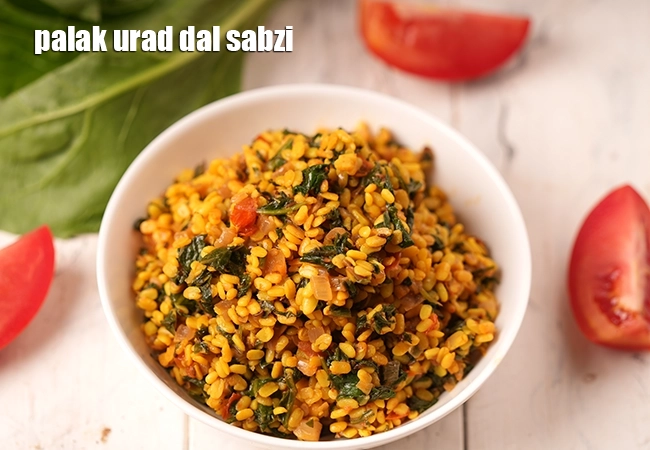
Indian fats for pregnancy
Now that you know exactly what a balanced diet should comprise of, here is a self-explanatory food guide, to know the various food groups and the quantities you can eat.INDIAN FOOD GUIDE DURING PREGNANCY
spinach and paneer soup recipe | palak paneer soup | healthy spinach cottage cheese soup |
Spinach and Paneer Soup
Absolutely, yellow moong dal (split and hulled mung beans) is a fantastic and safe food choice during pregnancy. It's highly prized for its rich nutritional content, which is incredibly important for both you and your developing baby. This dal is an excellent source of protein, vital for your baby's rapid growth and for repairing your own body tissues. What's more, it's packed with folate (Vitamin B9 or folic acid), a crucial nutrient that plays a significant role in preventing neural tube defects in your baby's brain and spinal cord. It also provides iron, helping to prevent iron-deficiency anemia, which is common in pregnancy, and ensuring your baby gets enough oxygen. Its high fiber content is a bonus, aiding digestion and preventing constipation, a frequent discomfort when you're expecting. Being easily digestible and light on the stomach, yellow moong dal can be a comfortable and nourishing addition to a pregnant woman's diet.
suva moong dal recipe | acidity friendly dal | healthy dill split yellow gram dal | protein rich dal
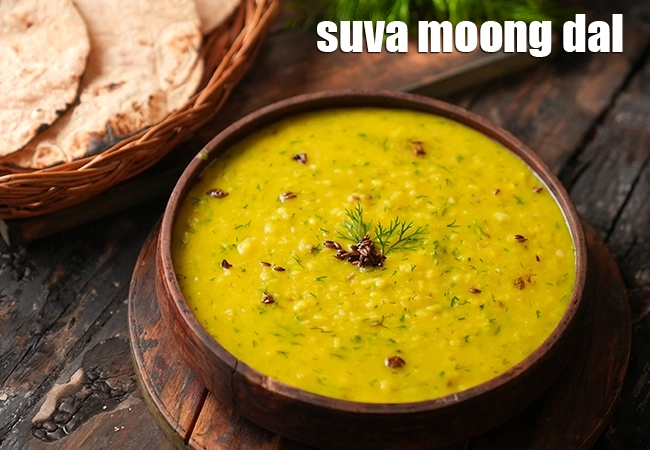
6. Indian fats for pregnancy
In the Indian diet, healthy fats play a vital role in supporting a healthy pregnancy, providing concentrated energy and essential nutrients crucial for both the mother and the developing baby. Ghee (clarified butter) is a traditional and highly valued fat, offering fat-soluble vitamins (A, D, E, K) and healthy fatty acids. It's often consumed in moderation, added to rotis, dals, or khichdi, and is believed to aid digestion.
Besides ghee, healthy fats from plant-based sources like nuts (almonds, walnuts), seeds (flaxseeds, chia seeds), and healthy cooking oils such as olive oil, coconut oi, mustard oil or groundnut oil (depending on regional culinary practices) are also important. These fats provide essential fatty acids, including Omega-3s, which are critical for the baby's brain and eye development. Conscious inclusion of these beneficial fats, while avoiding excessive amounts of saturated and trans fats often found in processed foods, contributes significantly to meeting the increased energy and nutrient demands of pregnancy.
Forget the white bread and turn to Almond Bread.
Almond Bread, Homemade Almond Bread Without Eggs
Have plenty of water and other fluids too. This is necessary to maintain water balance in the body.
Now that you know exactly what a balanced diet should comprise of, here is a self-explanatory food guide, to know the various food groups and the quantities you can eat.
INDIAN FOOD GUIDE DURING PREGNANCY
| FOOD GROUPS | No. of servings per day | What makes 1 Serving? | Suggested Recipes |
|---|---|---|---|
| CEREALS AND THEIR FLOURS whole wheat flour, unpolished rice, Jowar, Bajra, Ragi (Nachni) bulgur wheat (dalia, corn, whole wheat pasta, whole wheat bread etc. | 6 to 10 servings | 1 slice of whole wheat bread (25 gm)* Or 2 phulkas (30 gm)* Or 1 chapati (25 gm) * or 1 paratha (25 gm)* Or 1/2 cup all cooked cereals and pasta | Oats Palak and Sprouts Mini Uttapa, Paushtic Roti, Bajra Khichdi, whole wheat pasta in low calorie white sauce recipe |
| PULSES Whole Moong, lobhis beans, rajma, chick peas (kabuli chana), etc. Sprouts Moong, rajma, matki etc. Masoor dal, chana dal, urad dal etc. Flours Moong dal flour, chana dal flour ( besan) etc. | 2 to 3 servings | 1/4 cup raw whole pulses (35 to 40 gm)* Or 1/2 cup cooked whole pulses(70 to 80 gm)* Or 1/2 cup sprouts (60 to 80 gm)* Or 1/2 cup of raw or cooked dals(70 to 80 gm)* Or 1/2 cup of flours (40 to 60 gm)* | Kabuli Chana Salad, sprouts and palak idli , Hariyali Dal, Moong Dal Dosa |
| VEGETABLES Carrots, beetroot, Cucumber, Eggplant, french beans, cluster beans (gavarfali), (gavarfali), Cauliflower etc. Leafy Vegetables Spinach (Palak), Fenugreek (Methi), lettuce, radish leaves, coriander, Cow pea (chawli) leaves,Colocasia, Cabbage etc. | 3 to 5 servings | 1/2 cup raw vegetables (50 to 70 gm)* Or 1/2 cup cooked vegetables (50 to 70 gm)* Or 1 cup raw leafy vegetables (15 gm of vegetables like mint,coriander, fenugreek and 40 to 60 gm of otherLeafy vegetables)* Or 1/2 cup cooked leafy vegetables 15 gm of vegetables like mint,coriander, fenugreek and 40 to 60 gm of other leafy vegetables)* | Chawli, French Beans and Carrot Soup, Broccoli, Carrot and Paneer Subzi, moong dal methi sabzi |
| FRUIT Pineapple, Sweet Lime, Orange, guava, Watermelons, mango, Apple etc. Dried Fruits Almonds, cashewnuts, Walnuts, sesame seeds (til), Peanuts, dates, figs, apricoats etc. | 2 to 3 servings | 1/2 cup chopped fruits (50 to 60 gm)* Or 1 big piece of fruit for e.g. melon wedge (100 to 130 gm)* Or 1 cup fruit juice (200 ml)* Or 1 to 2 tablespoon dried fruits (20 to 30 gm)* | Til Chikki, Fig and Apricot Shake |
| DAIRY PRODUCTS Milk, Curds, Paneer, cheese etc. | 2 to 3 servings | 1 cup milk (200 ml)* Or 1 cup curds (299 ml)* Or 1/4 cup chopped paneer (35 gm)* Or 1/4 cup shredded cheese (35 gm)* | Date and Banana Shake, veg raita, parsley paneer dip |
| FATS AND SUGAR Ghee, oil, butter, sugar and jagger | * * | Although there is no specific recommendation for this group, aproximately 2 tablespoons of fat and 1 to 2 teaspons of refined sugar can be consumed per day. | moong dal paneer tikki, quinoa upma |
Here are some more healthy pregnancy recipes.
Recipe# 138
12 January, 2023
calories per serving
Recipe# 2973
24 May, 2014
calories per serving
Recipe# 2999
02 December, 2021
calories per serving
Recipe# 2971
17 November, 2022
calories per serving
Recipe# 2993
06 September, 2021
calories per serving
Recipe# 3010
07 November, 2017
calories per serving
Recipe# 3005
15 March, 2011
calories per serving

Related Articles
Follow US
Recipe Categories
- Vitamin B12 Cobalamin Rich 35 recipes
- Low Calorie, Weight Loss Indian 423 recipes
- Low Cholesterol Indian 315 recipes
- Healthy Indian Breakfast 374 recipes
- Indian Diabetic 565 recipes
- Indian Pregnancy 461 recipes
- Zero Oil Indian 133 recipes
- Iron Rich Indian 268 recipes
- Healthy Indian Acidity 137 recipes
- Healthy Sabzi 108 recipes
- Healthy Indian Vegetarian Snack 276 recipes
- Healthy Heart 421 recipes
- Healthy Indian Vegetarian Soups 74 recipes
- Calcium Rich Indian 373 recipes
- High Blood Pressure Indian 104 recipes
- Healthy Indian Salads 137 recipes
- Low Carb Indian Diet 163 recipes
- Hypothyroidism Diet 63 recipes
- Arthritis Diet 68 recipes
- High Protein Indian 95 recipes
- Vitamin K Diet 42 recipes
- Fatty Liver Diet 39 recipes
- PCOS 136 recipes
- Gluten Free Veg Indian 197 recipes
- High Fiber 329 recipes
- Indian Cancer Patients 275 recipes
- Jaundice Diet 45 recipes
- Sprouts 61 recipes
- Typhoid 43 recipes
- Irritable Bowel Syndrome (IBS) 23 recipes
- Kidney Stone Diet 10 recipes
- Home Remedies 213 recipes
- Senior Citizen 195 recipes
- Healthy Indian Drinks and Juices 214 recipes
- Diet for Dialysis 10 recipes
- Gout Indian Recipes 17 recipes
- Potassium Rich 80 recipes
- Vegan 195 recipes
- Indian recipes to treat Vomiting 8 recipes
- Forever Young Diet, Anti Aging Indian Diet 255 recipes
- Antioxidant Rich Indian 445 recipes
- Vitamin B1 Rich Indian Foods, Recipes 101 recipes
- High in Omega 3 Fatty Acids 32 recipes
- Zinc Rich Foods 55 recipes
- Vitamin A Rich, Beta Carotene, Retinol 89 recipes
- Malaria Diet 19 recipes
- Magnesium Rich 94 recipes
- Vitamin C Rich Indian recipes 118 recipes
- Healthy Indian Dinner 85 recipes
- Low Veg Glycemic Index 86 recipes
- Lower Blood Pressure Salads 8 recipes
- Healthy Indian Lunch Recipes 29 recipes
- Lactation 25 recipes
- Vitamin E Rich 51 recipes
- Hyperthyroidism Diet 47 recipes
- Vitamin B3, Niacin Rich 41 recipes
- Post Surgery Diet 42 recipes
- Selenium 27 recipes
- Phosphorus Rich Indian Recipes, Foods 74 recipes
- Lower Blood Pressure Desserts Sweets 14 recipes
- Copper 15 recipes
- Foods Rich in Vitamin B2 Riboflavin 22 recipes
- Vitamin B6 Diet 36 recipes
- B Vitamins 231 recipes
- Vitamin B9 Rich Folate 50 recipes
- Marathoners, Endurance Athletes, Triathlete 225 recipes
- Manganese Diet 32 recipes
- Thalassemia 18 recipes
- Detox Water, Fruit Infused Water 42 recipes
- Lactose Free Dairy Free 22 recipes
- Omega 6 Fatty Acids 32 recipes
- Phytonutrients 51 recipes
- Chronic Kidney Disease Indian recipes 12 recipes
- Selenium1 0 recipes
- Quick Indian Snacks / Quick Starters 385 recipes
- Quick Breakfast Indian 131 recipes
- Quick & Easy Indian Sabzi 117 recipes
- Quick Rotis and Parathas 46 recipes
- Quick Indian Sweets 139 recipes
- Quick Stir-Fries 51 recipes
- Quick Vegetarian Indian Soups 72 recipes
- Quick Chutneys 67 recipes
- Quick Vegetarian Rice, khichdi Recipes 56 recipes
- Indian Snacks Under 10 Minutes (Quick Veg Recipes) 44 recipes
- Quick Indian Dips, Gravies & Sauces 105 recipes
- Quick Veg Indian Pizza 17 recipes
- Quick Veg Pasta 25 recipes
- Quick Pickles / Aachar 25 recipes
- Quick Dals / quick Kadhis 29 recipes
- Snacks under 5 minutes 33 recipes
- Quick Healthy Recipes 43 recipes
- Quick Pressure Cooker 46 recipes
- Quick Desserts 48 recipes
- Quick 3 Ingredients 63 recipes
- Quick Indian Desserts 21 recipes
- Quick 4 Ingredients 41 recipes
- Quick 5 Ingredients 42 recipes
- Kids Tiffin Box 319 recipes
- Recipes for Toddlers (1-3 Years) 32 recipes
- Sweet Recipes for Kids 456 recipes
- Recipes for Baby (10 to 12 Months) 17 recipes
- Quick Indian recipes for Kids 72 recipes
- Indian Breakfast Recipes for Kids 194 recipes
- Recipes for Weaning (8 to 9 months) 22 recipes
- Snack Recipes for Kids 620 recipes
- Healthy Foods for Kids 196 recipes
- Recipes Kids can make 36 recipes
- Kids After School 794 recipes
- Kids Jar Snacks 67 recipes
- Finger Foods for Babies, Toddlers and Kids 76 recipes
- Kids Weight Gain 43 recipes
- Kids Wraps and Rolls 23 recipes
- Kids Veg Pasta 27 recipes
- Kids Brain Boosting 68 recipes
- Protein rich food for kids 71 recipes
- Recipes for Weaning 15 recipes
- Kids Pizzas 30 recipes
- Babies, Toddler and Kids Iron Rich Foods 31 recipes
- High Fiber Foods for Kids 40 recipes
- Kids High Energy Indian Foods 103 recipes
- Kids Noodles 37 recipes
- Kids Calcium Rich Indian recipes 92 recipes
- Babies recipes, 6 to 18 months 34 recipes
- Kids Recipes for Increasing Immunity 10 recipes
- Kids Weight Loss 58 recipes
- Teething Recipes for Babies 10 recipes
- Cereals and Pulses for 8 to 9 months Baby 8 recipes
- Weaning foods at 7 months 12 recipes
- Indian Teen 315 recipes
- Starters / Snacks 2139 recipes
- Indian Breakfast 820 recipes
- Main Course Recipes 928 recipes
- Indian Salads 385 recipes
- Indian Desserts , Sweets 985 recipes
- Indian Soups 249 recipes
- Indian Drinks (Chai, Lassi & More) 484 recipes
- Indian Dinner 903 recipes
- Indian Dinner1 0 recipes
- Indian Lunch 829 recipes
- Side Dishes 449 recipes
- Indian Travel Food 433 recipes
- Indian Barbeque1 recipes 22 recipes
- Frozen Foods, Indian Freezer Recipes 67 recipes
- Whole Wheat Recipes 56 recipes
- Indian Comfort Foods 212 recipes
- Dinner Menus 56 recipes
- Easy Indian Veg 70 recipes
- Innovative Indian Recipes 27 recipes
- No Cook Indian 37 recipes
- Advanced Recipes 10 recipes
- Cakes with Eggs 13 recipes
- Microwave 229 recipes
- Oven 619 recipes
- Indian Steamer Recipes 102 recipes
- Kadai Veg 407 recipes
- Indian Barbeque Recipes 43 recipes
- Sizzler tray 15 recipes
- Mixer 566 recipes
- Pressure Cooker 315 recipes
- Tava 647 recipes
- Non-stick Pan 1393 recipes
- Indian Freezer recipes, meals 57 recipes
- Appe Mould 18 recipes
- Pan 223 recipes
- Non Stick Kadai Veg 203 recipes
- kadai Indian 150 recipes
- Refrigerator 176 recipes
- Waffle Indian recipes 6 recipes
- Handi 12 recipes
- Juicer and Hopper 65 recipes
- Grill 31 recipes
- Toaster 21 recipes
- Gas Toaster 8 recipes
- Healthy Indian steamed 73 recipes
- No Cooking Veg Indian 335 recipes
- Vegetarian baked Indian recipes 381 recipes
- Boiled Indian recipes 129 recipes
- Deep Fry 261 recipes
- Indian Tawa 265 recipes
- Shallow Fry Indian 25 recipes
- Microwave1 172 recipes
- Saute 273 recipes
- Indian Pressure Cooker 171 recipes
- Stir-fry 101 recipes
- Roasting 0 recipes
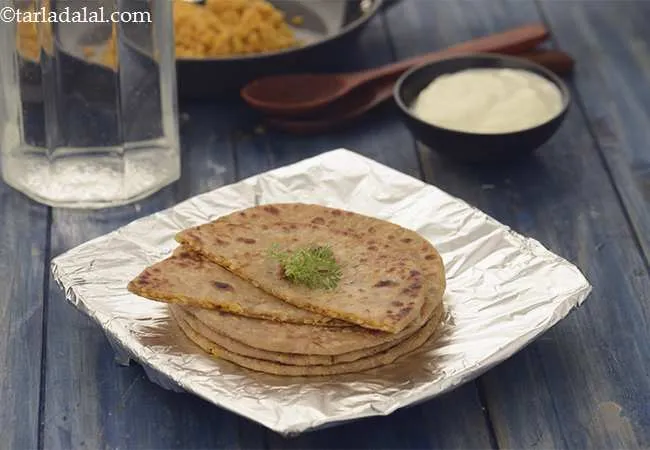
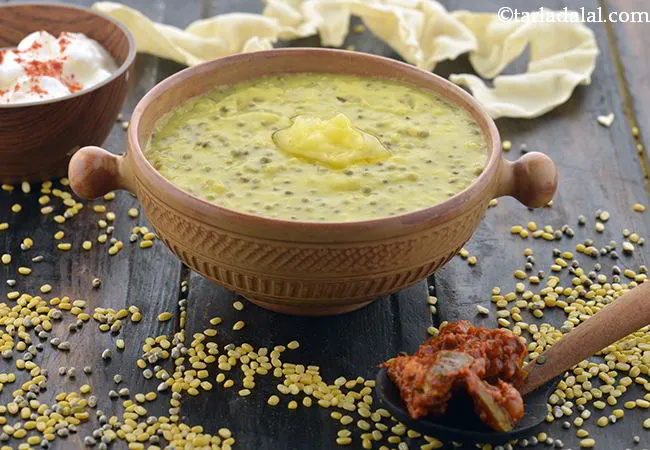
.webp)
.webp)
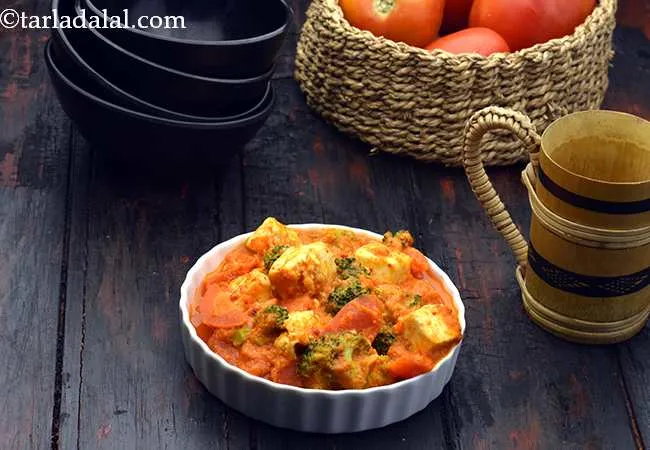
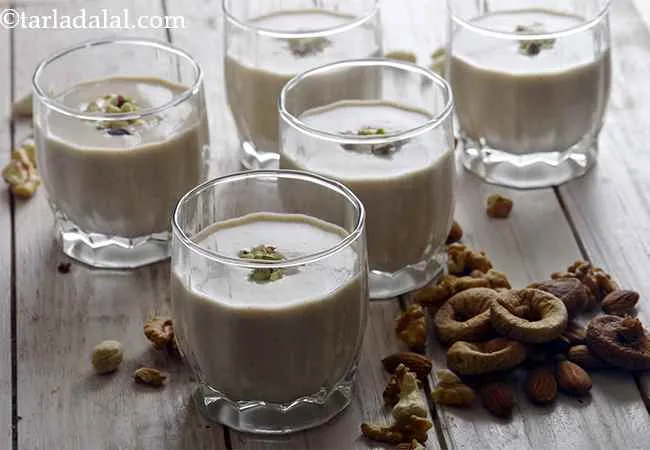
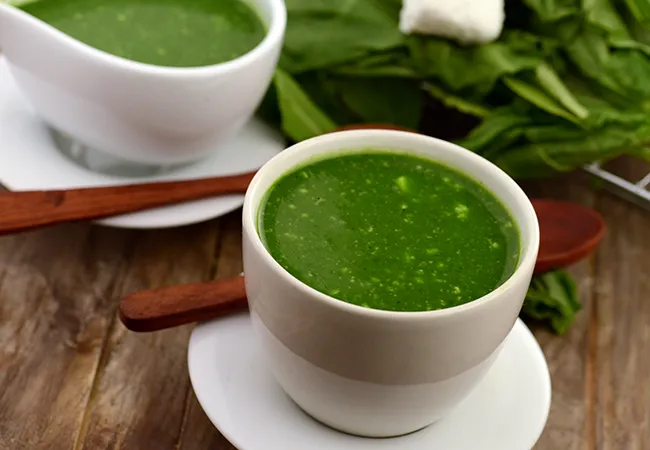
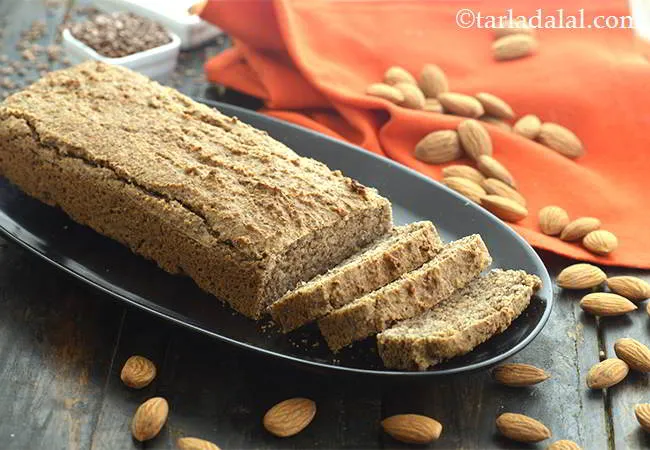


-15476.webp?w=120&format=webp)

















